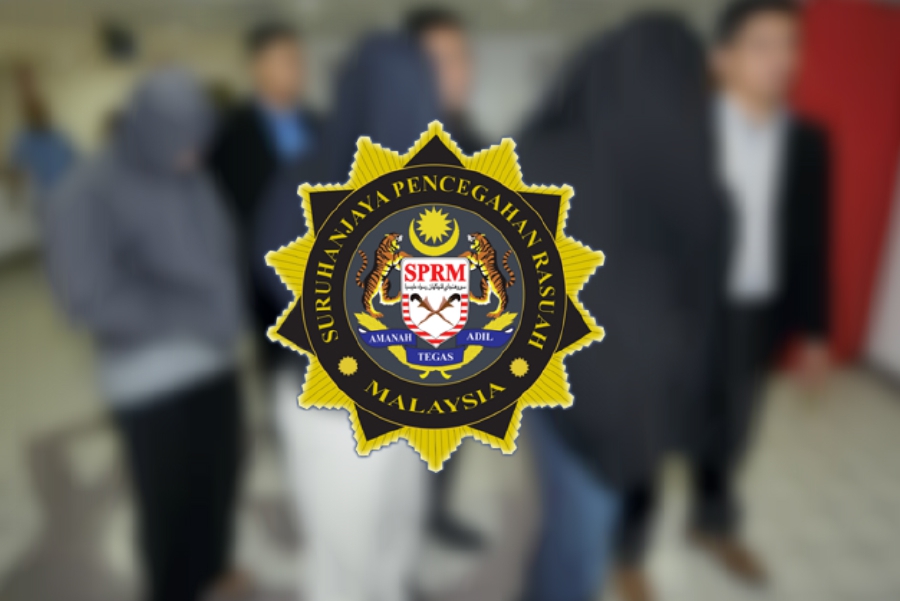
(File pix) 47 officers tasked with exposing graft, abuse of power in civil service returned to commission
By ALIZA SHAH - January 18, 2018 @ 8:53am
FORTY-SEVEN Certified Integrity Officers (CeIOs) with the Malaysian Anti-Corruption Commission (MACC) tasked with smoking out corruption and abuse of power in the civil service have been yanked out from ministries and agencies they were overseeing.
The removal of these officers after almost six years came as a shock to many, especially those who had been encouraged by the commission’s successes in taking on corruption cases head-on.
This turn of events, they said, was the opposite of what had been laid out when the setting up of the National Integrity and Good Governance Department (JITN) was announced late last year.
The spirit behind JITN, run by Administration and Diplomatic Service (PTD) officers, as reported then, was to spearhead integrity efforts at ministries and agencies.
It was also made clear that MACC’s independence as watchdogs would continue there.
It was also made clear during the announcement that the setting up of the integrity arm at these establishments would be supervised by MACC.
Sources told the New Straits Times that the officers were returned to MACC recently and these agencies now have one of their own to keep the integrity of their organisation in check and keep corruption and abuse of power at bay. They will report to the head of their organisation.
This is in contrast to when MACC men were tasked with the job.
The graft-busters, who were also tasked with corruption-prevention initiatives at these mostly high- and medium-risk government agencies, were under MACC’s payroll and would channel their reports to their headquarters.
The sources voiced concerns about how the effectiveness of enforcement against corruption would be degraded and how it would adversely impact the government’s efforts to address leakages.
Among their other concerns are:
THE issue of transparency of internal probes as the integrity units (JITN) would report to the head of their agency;
WHETHER or not the JITN officers were trained in “black ops” and results-oriented investigations;
IF cases taken up by JITN officers would go beyond disciplinary action;
MACC will be locked out from its primary role of investigating corruption and abuse of power;
PTD officers do not have the power to investigate; and,
IF MACC does penetrate the organisation to probe graft, it will not be able to carry out any follow-up remedial action to prevent such a culture, as it would, by law, be prevented to do so.
“MACC CeIOs are trained investigators. They had acted as middlemen between MACC and the organisations they were deployed to.
“Their being in these agencies had eased the process of information sharing and gathering. With their removal, there is a huge disconnect.
“And, worse still, MACC is now no longer at liberty to share with them any information, as the commission is only allowed to share information on investigations with its own officers,” one of the sources said.
These 47 men, seniors in the civil service, were highly trained to smell a rat.
Unknown to many, they had been credited with some of the major corruption busts that had rocked the country, including high-profile cases involving the Kuala Lumpur City Hall and the Sports and Youth Ministry.
Statistics showing their effectiveness in weeding out corruption and abuse of power were also furnished to this newspaper.
It showed that these graft-busters had, during their service, taken down 4,000 complaints. They were able to pursue, to the end, 1,600 of them, including those that were classified as “misconduct”.
The roles of the PTD officers were, in the past, not formalised under a specific department, such as the newly-established JITN. Under the same period of five years, they “detected and verified” 683 cases of misconduct.
Sources attributed the huge disparity to the officers’ lack of understanding and know-how in handling cases of corruption and abuse of power.
“MACC CeIOs, who work independently in these organisations, had succeeded in creating the fear factor in those with corrupt tendencies,” said the sources.
Another set of sources told the NST that removing the CeIOs would disrupt the graft-busters’ efforts in combating the menace in the public sector.
“CeIOs were trained to identify corruption and abuse of power and they conducted investigations without bias.
“What will happen now if someone in the organisation comes forward, to these PTD officers, to report on their corrupt superior, who is also their boss?
“Will they take on the higher-ups?”










